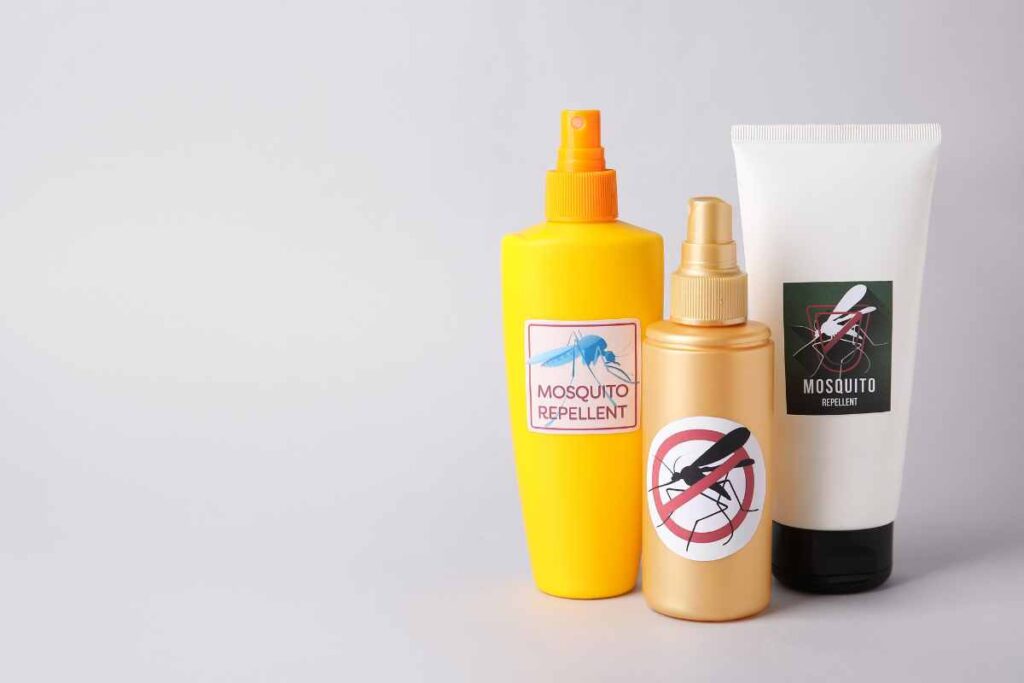Choosing the right mosquito repellent is crucial for staying protected from bites, especially during outdoor activities. With so many options available, finding the best repellent can be overwhelming.
In this guide, we’ll explore the top seven mosquito repellents for 2024, each selected based on effectiveness, safety, and ease of use.
Whether you prefer a natural, DEET-free formula or a heavy-duty repellent for extreme conditions, our list has something for everyone.
Read on to discover which products will help you stay bite-free this year and enjoy your time outdoors without worry.
Understanding Mosquito Repellents
Mosquitoes are more than just annoying pests; they can also transmit serious diseases like malaria, dengue fever, and West Nile virus. Protecting yourself from mosquito bites is essential, and using effective repellents is a crucial part of your defense strategy.
How Mosquito Repellents Work
Mosquito repellents work by creating a barrier between you and the insects. They contain active ingredients that confuse mosquitoes’ senses, making it difficult for them to locate you.
These ingredients can mask your body odor, disrupt their olfactory system, or even repel them physically.
Active Ingredients in Repellents
- DEET (N,N-diethyl-m-toluamide): One of the most effective mosquito repellents available.
- Picaridin: Another potent repellent that is often considered a safer alternative to DEET, especially for children and those with sensitive skin.
- Oil of lemon eucalyptus: A natural repellent derived from eucalyptus trees.
- Citronella: A plant-based ingredient known for its insect-repelling properties.
Types of Mosquito Repellents
There are several different types of mosquito repellents to choose from, each with its own advantages and disadvantages.
- Chemical-based repellents: These contain synthetic ingredients like DEET or Picaridin. They are generally highly effective but may irritate sensitive skin.
- Natural repellents: Made from plant-based ingredients, these are often considered gentler on the skin but may not be as effective as chemical repellents.
- Wearable repellents: These include bracelets, patches, and wristbands that release insect-repelling substances.
- Electronic and ultrasonic repellents: These devices emit high-frequency sounds or electronic fields that are claimed to repel mosquitoes, but their effectiveness is often debated.
Best Mosquito Repellents for Humans
Choosing the best mosquito repellent for your needs can be overwhelming. Here are some factors to consider:
Criteria for Selecting the Best Repellent
- Effectiveness: Look for repellents that are effective against the mosquito species prevalent in your area.
- Duration of protection: Consider how long the repellent will protect you, especially if you’ll be outdoors for extended periods.
- Safety: Ensure the repellent is safe for adults, children, and pregnant women.
- Skin sensitivity: If you have sensitive skin, choose a repellent that is gentle and won’t cause irritation.
- Ease of application: Consider whether you prefer sprays, lotions, wipes, or other application methods.
Top 7 Commercial Mosquito Repellents for Humans
When it comes to protecting yourself from mosquitoes, choosing a reliable and effective repellent is essential. Below are seven top-rated mosquito repellents recommended by pest control professionals to ensure you stay bite-free during your outdoor activities.
OFF! Deep Woods Insect Repellent VIII
- Active Ingredients: 25% DEET
- Effectiveness: Provides up to 8 hours of protection.
- Ideal Use Cases: Best for heavy-duty outdoor activities like hiking and camping. This aerosol spray offers excellent coverage and is non-greasy, though it can feel dry on the skin.
Repel Lemon Eucalyptus Insect Repellent
- Active Ingredients: Oil of Lemon Eucalyptus (OLE)
- Effectiveness: Up to 6 hours of protection.
- Ideal Use Cases: A great DEET-free option for those who prefer natural ingredients, suitable for casual outdoor use. It’s particularly effective against mosquitoes and has a pleasant scent.
Sawyer Products 20% Picaridin Insect Repellent
- Active Ingredients: 20% Picaridin
- Effectiveness: Provides up to 12 hours of protection.
- Ideal Use Cases: Ideal for long outdoor excursions where extended protection is needed. It’s a DEET alternative that is less greasy and more pleasant to use on the skin .
Natrapel 12-Hour Mosquito, Tick & Insect Repellent
- Active Ingredients: 20% Picaridin
- Effectiveness: Up to 12 hours of protection.
- Ideal Use Cases: Excellent for both mosquitoes and ticks, making it perfect for camping and trekking in tick-prone areas. The formula is easy to apply and doesn’t feel greasy.
OFF! FamilyCare Insect Repellent
- Active Ingredients: 15% DEET
- Effectiveness: Up to 6 hours of protection.
- Ideal Use Cases: Safe for use on children and adults alike, making it perfect for family outings and backyard barbecues. It has a mild scent and is non-sticky on the skin.
Cutter Backwoods Insect Repellent
- Active Ingredients: 25% DEET
- Effectiveness: Provides up to 10 hours of protection.
- Ideal Use Cases: Designed for prolonged outdoor activities, it offers robust protection against mosquitoes, ticks, and other biting insects. The formula is resistant to sweat and water.
EarthKind Stay Away Mosquitoes
- Active Ingredients: 20% Picaridin
- Effectiveness: Up to 14 hours of protection from mosquitoes.
- Ideal Use Cases: A great DEET-free option, ideal for those with sensitive skin or those who prefer a fragrance-free product. It’s also safe for use on children, making it a versatile choice for families.
Comparing Chemical and Natural Mosquito Repellents
Efficacy and Safety
- Duration of protection: Chemical-based repellents often offer longer-lasting protection compared to natural repellents.
- Effectiveness in high-risk areas: Chemical repellents are generally more effective in areas with high mosquito populations, such as tropical regions.
- Safety for different age groups: Natural repellents are often considered safer for children and pregnant women, but it’s essential to consult with a healthcare professional.
Environmental Impact
- Impact on the environment: Chemical repellents may have a negative impact on the environment and non-target species.
- Eco-friendly alternatives: Natural repellents are generally considered more environmentally friendly, but their effectiveness can vary.
Mosquito Control strategies should include understanding both chemical and natural repellent options to balance effectiveness, safety, and environmental impact.
How to Apply Mosquito Repellent Effectively
Best Practices for Application
- Even coverage: Apply repellent evenly to exposed skin and clothing.
- Reapplication: Reapply repellent as needed, especially after sweating or swimming.
- Avoid sensitive areas: Avoid applying repellent to cuts, scrapes, or mucous membranes.
Common Mistakes to Avoid
- Overuse or underuse: Use the recommended amount of repellent and avoid excessive application.
- Applying on clothing: While applying repellent to clothing can provide additional protection, it may not be as effective as applying it directly to the skin.
- Misconceptions about repellent efficacy: Be aware of common misconceptions about mosquito repellents, such as the belief that certain colors or scents can repel mosquitoes.
Final Thoughts
Choosing the best mosquito repellent hinges on your individual needs and preferences, as factors like skin sensitivity, duration of exposure, and personal scent preferences all play a role.
It’s important to understand the various types of repellents available, including those containing DEET, picaridin, and natural alternatives like citronella.
Knowing their effectiveness, potential side effects, and the correct application methods can significantly enhance your protection against mosquito bites and the diseases they may transmit.
By selecting a repellent that aligns with your specific requirements and using it appropriately, you can ensure a more comfortable and safer environment.

